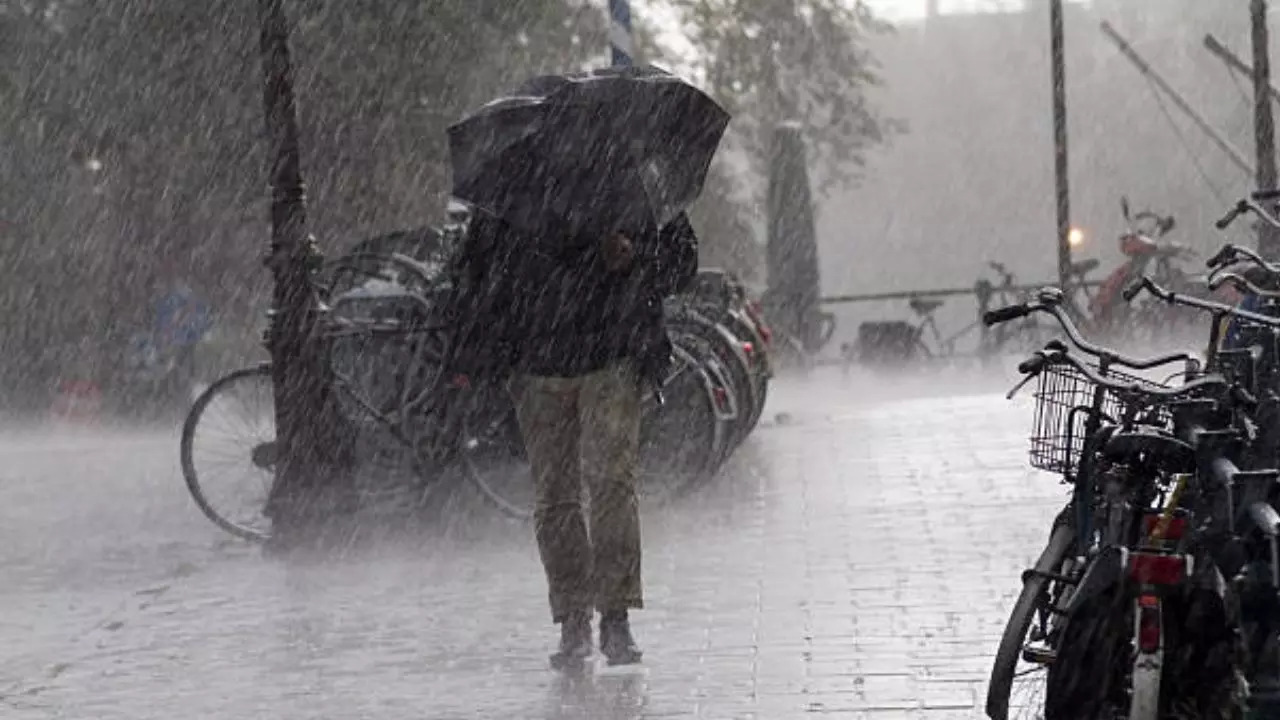Have you gotten drenched in the rain? Health risks you should be aware of
Getting wet in the rain can lead to health risks like respiratory infections, hypothermia, skin problems, dehydration and joint strains. Staying in a wet and cold environment for a long time weakens the immune system and can lead to a variety of problems. We got in touch with a health expert who shares tips to keep yourself safe. Read on to know more.

Got drenched in the rain? Health risks you should know about (Image courtesy: iStock)
The monsoon season brings respite from the scorching heat. Getting drenched in the rain may feel refreshing, but it can also pose a huge risk to your health if you are not careful. Getting drenched in the monsoon can lead to a variety of health problems, ranging from minor health issues to life-threatening ones. We spoke to Rakesh Gupta, Senior Consultant, Internal Medicine, Indraprastha Apollo Hospitals, who explained some of the health risks associated with getting drenched in the monsoon.
1. Hypothermia, Prolonged exposure to cold rainwater can cause hypothermia, a condition in which the body’s core temperature drops below 95 degrees F (35 degrees C). Symptoms include shivering, confusion, and difficulty breathing. If left untreated, hypothermia can lead to heart failure and even death.
2. Respiratory infection: Monsoon rains can increase respiratory infections such as bronchitis, pneumonia and asthma attacks. This is because rainwater may contain pollutants and allergens that can aggravate respiratory problems. People who already have respiratory problems should take extra precautions to avoid getting wet.
3. Waterborne Diseases, Flood water can contaminate water sources, leading to waterborne diseases such as cholera, typhoid and diarrhea. These diseases can be fatal if left untreated. It is important to drink only purified water and avoid street food.
4. Skin Infection: Wet clothes and shoes can cause skin irritation and infections such as fungal infections, eczema and dermatitis. To prevent skin infections, wear waterproof clothes and shoes and change into dry clothes as soon as possible.
5. Leptospirosis: This bacterial infection spreads through the urine of infected animals and can contaminate flood water. Symptoms include fever, headache and muscle pain. If left untreated, leptospirosis can lead to kidney and liver failure.
6. Electric shock: Downed power lines and electrical outlets can pose a risk of electric shock, especially in flooded areas. Avoid walking in flooded areas and stay away from downed power lines.
7. Injuries: Slippery roads and pavements can cause injuries from falls, while fast-moving floodwaters can cause injuries from debris and sharp objects. Wear appropriate footwear and avoid walking in flooded areas.
8. Mental health: The monsoon season can also take a toll on mental health, increasing stress, anxiety, and depression. Stay connected with friends and family and seek professional help if needed.
Tips to keep yourself safe
Rakesh Gupta suggests taking the following precautions to minimise the health risks of getting wet during monsoons:
Avoid traveling during heavy rainfall,
– wear waterproof clothing and footwear,
Maintain a safe distance from flood water.
– Avoid drinking contaminated water,
– keep yourself warm and dry,
– avoid walking in flooded areas,
– Stay indoors during a thunderstorm.
Get the latest news on Times Now as well as breaking news and top headlines from across health and the world.


